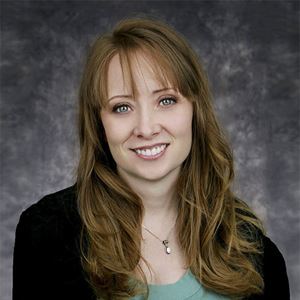Profiles in research: Stacey Knight, Ph.D.

Intermountain Medical Center, in Salt Lake City, has a goldmine of patients’ clinical health records data collected during the last 20 years. With sophisticated research tools available through the AHA Institute for Precision Cardiovascular Medicine, Intermountain researchers are mining the data to turn it into meaningful heart health discoveries.
Stacey Knight, Ph.D, a cardiovascular and genetic epidemiologist at the Intermountain Medical Center Heart Institute, said the medical center added genealogy (family history) records to match its 1.6 million patient database. Linking clinical to genealogy information will help researchers better understand not only what’s going on health-wise in individual patients, but also how family relationships as distant as nine generations apart might impact disease risk.
“Our project takes those two very large datasets and use the American Heart Association’s Precision Cardiovascular Medicine platform to accelerate findings of cardiovascular disease-related genetic causes,” Dr. Knight said.
The researchers also have access to DNA information for about 10,000 of the people in the dataset. DNA can reveal how shared genes for gene variants in one’s pedigree plays out in a person’s risk for cardiovascular disease.
Finding clues to a person’s disease risk using genetic, DNA and clinical data used to be like searching for a needle in a haystack. Traditional statistical analysis doesn’t work. Instead today’s researchers use technology to do simulations to find what might be fueling disease risk.
There are about a billion such simulations in this research, Dr. Knight said. Combing through the data in the past might have taken years on a single computer. But with the AHA’s platform--using multiple computers across a cloud--the search should take only weeks.
An example that’s already beginning to emerge is a pedigree with a high-risk for an irregular heartbeat called atrial fibrillation, or AFib. This particular pedigree of related people is five times more likely to have AFib than the general patient population.
“They tend to also have early-onset A-fib. At least eight of the pedigrees have AFib starting in their 50s,” she said.
In another pedigree, Dr. Knight and colleagues have found individuals with stable coronary artery disease, meaning they have severe three-vessel coronary artery disease but aren’t getting heart attacks at the rate one might expect.
“We’re searching for what’s protecting them from advancing to having a heart attack,” Dr. Knight said.
Yet another thing that’s remarkable about doing sophisticated research with large data sets on the American Heart Association’s precision medicine platform is that other researchers will be able to study the data, asking their own questions and searching for answers.
“We’re hoping to set this up so that other researchers could come in and find a pedigree that they might find interesting. They could use the DNA in that pedigree, do genotyping and then use the same analysis pipeline that we’ve set up,” Dr. Knight said.
The AHA has made it possible for a non-academic hospital to do the kind of research that once only well-funded academic centers could.
“Our focus isn’t cloud computing, and I’m not at a university,” Dr. Knight said. “This allows us to take the data that we do have and use resources that we don’t have to pay to maintain.”
The cost associated with setting up a project like this would be enormous for most hospitals. Instead, researchers can use the American Heart Association’s platform, which offers a secure setting in which only the information is available—not data needed to identify patients.
The reality is research of this magnitude could reveal why some people and their ancestors do or don’t get different types of diseases. Armed with the knowledge, doctors would be positioned to address known risks with medications or lifestyle modifications. With the help of futuristic gene altering technologies, they might even be able to change a person’s genetic profile to prevent disease, according to Dr. Knight.








